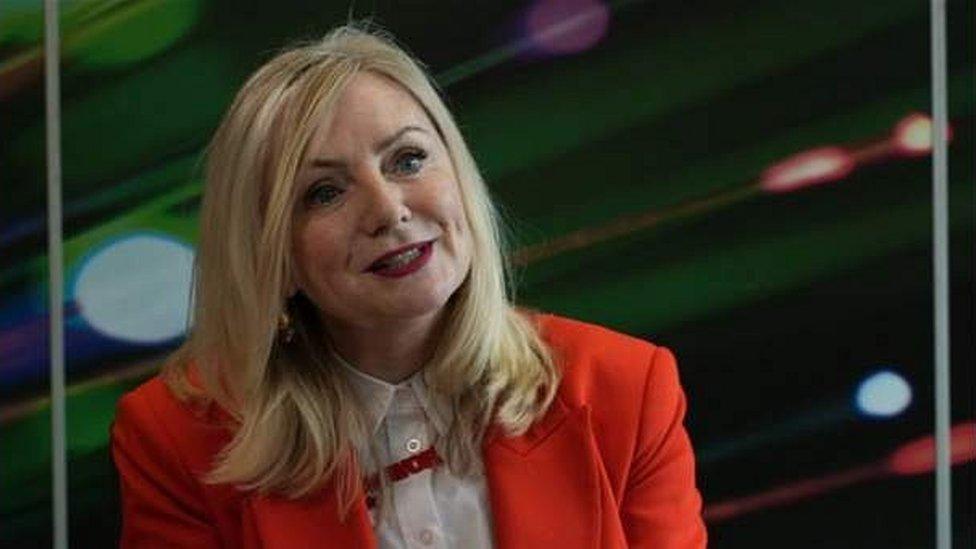Most women feel unsafe in parks, Newcastle research finds
- Published
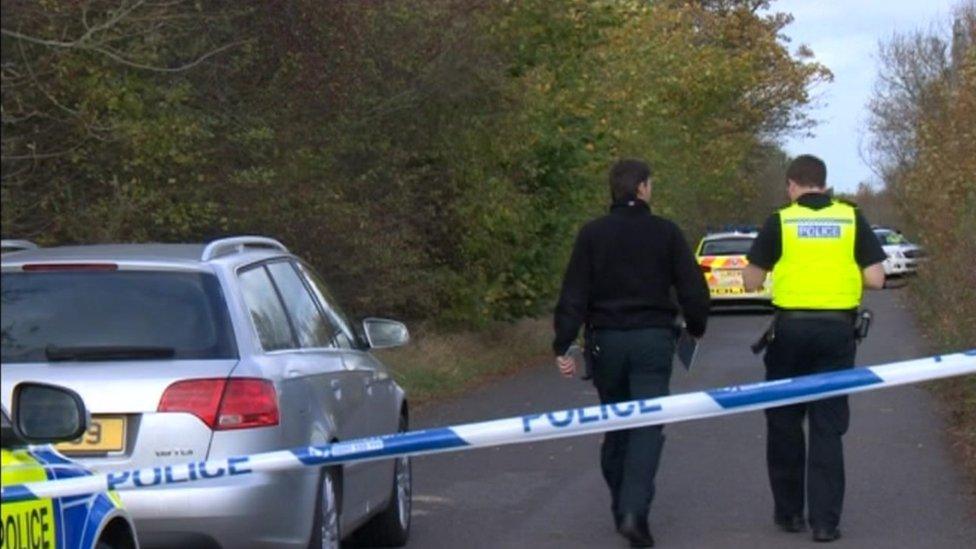
Northumbria Police and Crime Commissioner, Kim McGuiness said behaviour-change programmes for culprits would be run
About 80% of women feel unsafe in parks - especially when it is getting dark, a survey has found.
Newcastle University researchers also found 73% of women who had suffered harassment said it had happened in a North East park.
Northumbria Police and Crime Commissioner, Kim McGuiness, has pledged £2m funding to make public spaces safer.
She said she wanted more police patrols and street volunteer wardens.
Ms McGuiness, who commissioned the Safer Parks research, said she was also looking at education programmes - aimed particularly at men and boys - which would "challenge the behaviour of individuals that make women feel unsafe".
The Northumbria force also said it was identifying individuals who showed "misogynistic, inappropriate and potentially unsafe behaviour" towards women and "help and challenge them to recognise and address their behaviour".
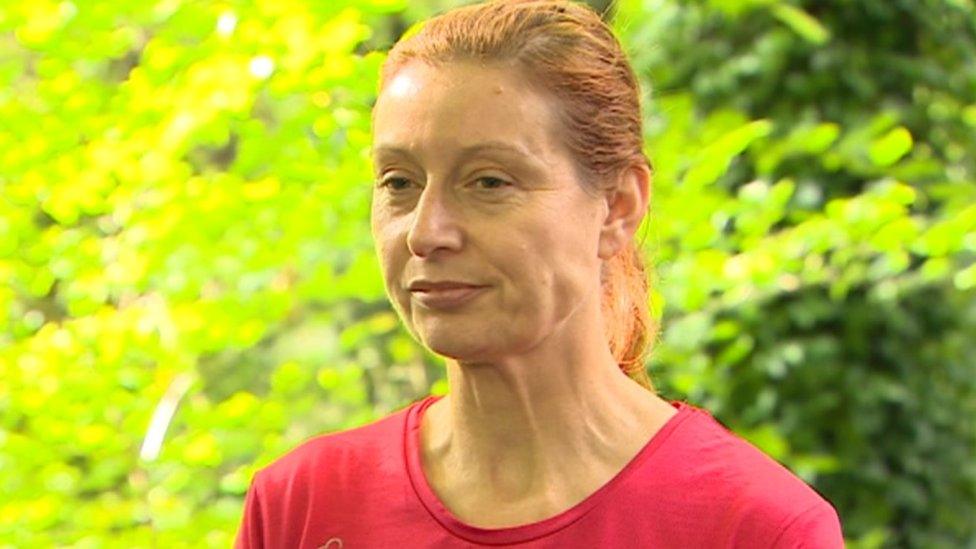
Jacqueline Turner was attacked while out running five years ago
Jacqueline Turner, a member of the Heaton Harriers running club, runs with others to feel safer after being attacked while out running in August 2017.
"There was a random man standing in the road and he deliberately pushed me over, got me into the road and kicked me while I was on the ground," she said.
"When I managed to get myself up I confronted him and asked him why he'd done it and he went for me again.
"One of the police officers actually said to me, 'you were just in the wrong place at the wrong time'.
"I just thought, 'I'm about 400m from my front door - where is the right place to be?'."
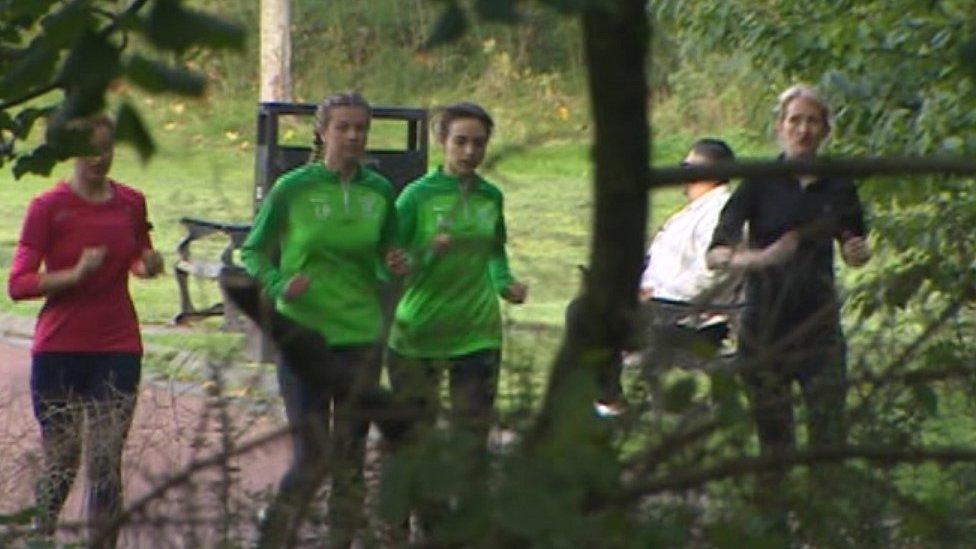
Newcastle University researchers also said 73% of women who reported being harassed said it had happened in parks
More than 420 park users took part in the research led by Professor Rachel Pain, of Newcastle University.
One participant said: "All of my friends have been either flashed, followed, sexually assaulted or verbally or physically abused by men, usually in vulnerable places like parks or at night in cities."
Another said: "There are too many instances to list.
"At a point of my life when I was about 17, it was a major harassment event - maybe once a week. This is part of being a woman in England, unfortunately."
Prof Pain said: "There are some things that haven't really changed in the three decades now that I've been researching women's safety in different spaces.
"There's really high levels of fear of crime, such as becoming the victim of a sexual or physical assault."
She added women's feelings were "really quite justified" as the rates of reported sexual violence and sexual harassment against women and girls were "fairly high".

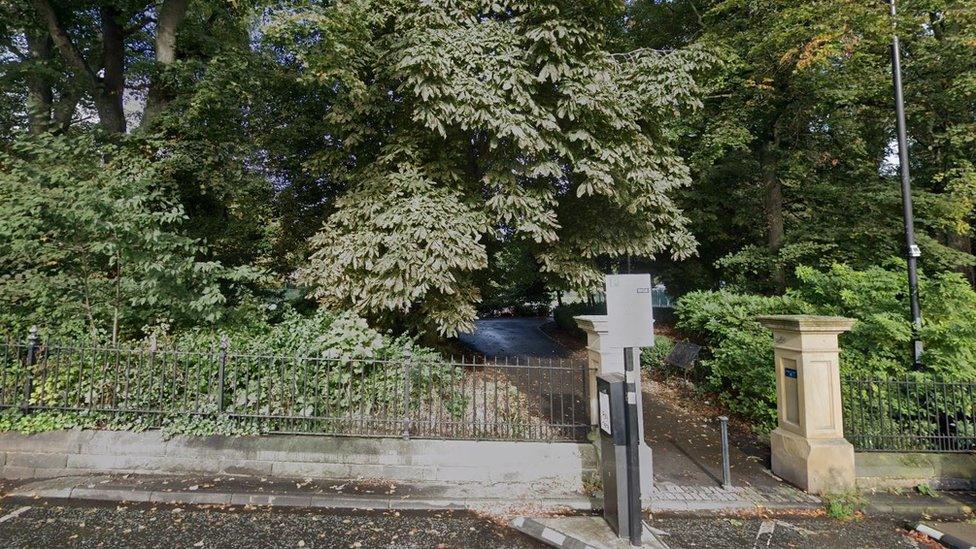
A total of 141 crimes were reported in Newcastle's Leazes Park over three years, including 14 rapes
Researchers found many of the region's parks were hotspots for sexual violence against women and girls.
Between 2018 and 2021:
114 crimes were reported in Saltwell Park, Gateshead, including 21 sexual offences and 13 rapes.
141 crimes were reported in Newcastle's Leazes Park, including 26 sexual offences and 14 rapes.
187 crimes were reported in Mowbray Park in Sunderland including 13 sexual offences and seven rapes.
Source: Northumbria Police crime statistics

Kim McGuinness, Labour Northumbria Police and Crime Commissioner, said: "The most important thing for me is to change the behaviour which makes people feel unsafe in the first place.
"Most of the women that responded to the survey told us that it is the behaviour of other people - men and boys - big groups of people that make them feel uncomfortable so we are working on that with behaviour-change programmes to try and change this."
Natalie, a member of Tyne Bridge Harriers running club, said the case of Sarah Everard who was kidnapped from a well-lit, busy street and murdered was often on her mind.
"I try and run in the daytime but it's coming into winter now which is obviously a concern thinking of the Sarah Everard murder," she said.
"She was on a very lit street that you would assume was safe, wore the clothes you are supposed to wear like reflective gear and trainers so you can make an escape if necessary, but still something happened to her.
"You do sometimes think, 'am I going to become one of those statistics?' - I know it's not likely.
"But there's always that slim chance you could bump into someone who is dangerous, it's always in the back of your mind."
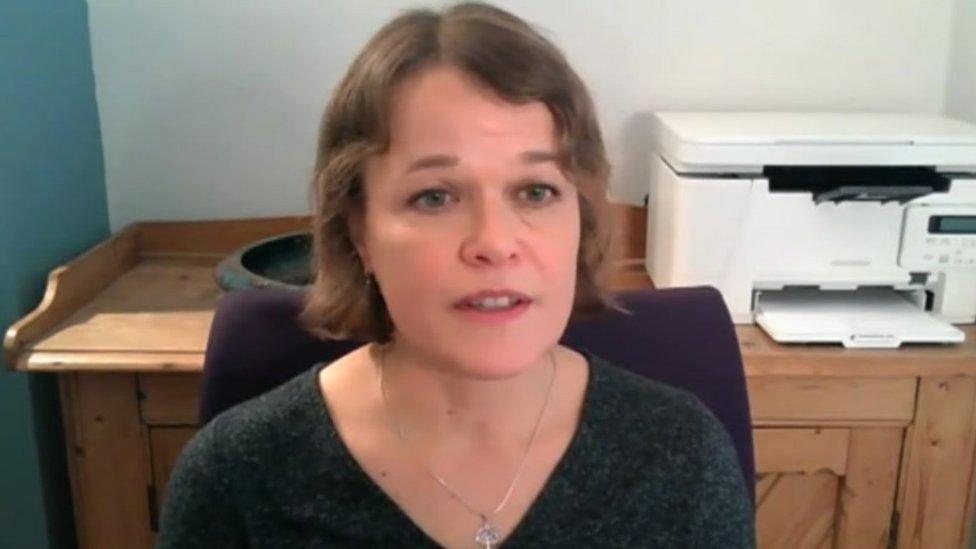
Researcher Professor Rachel Pain said women's fears of being the victims of crime were "very justified"

Follow BBC North East & Cumbria on Twitter, external, Facebook, external and Instagram, external. Send your story ideas to northeastandcumbria@bbc.co.uk, external.
Related topics
- Published26 September 2022
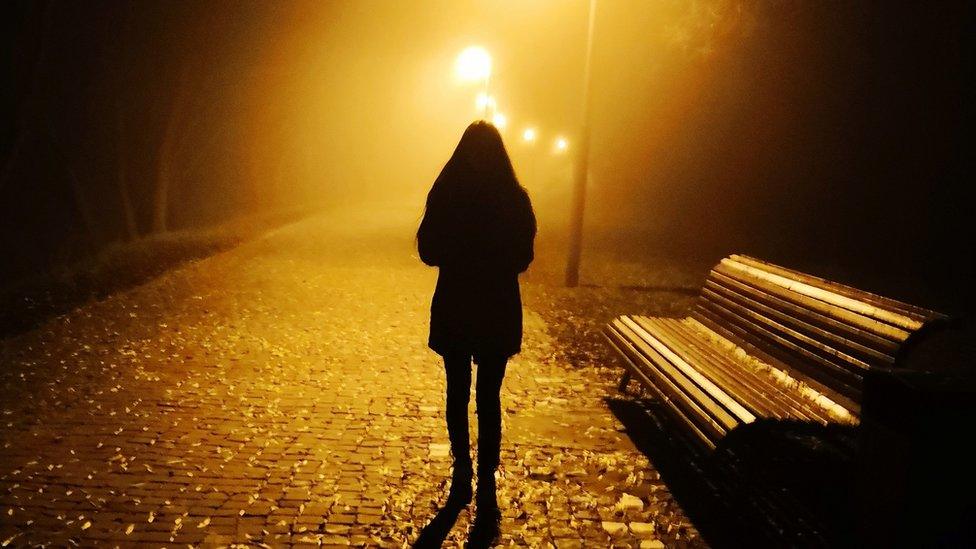
- Published31 August 2022

- Attribution
- Published10 March 2022
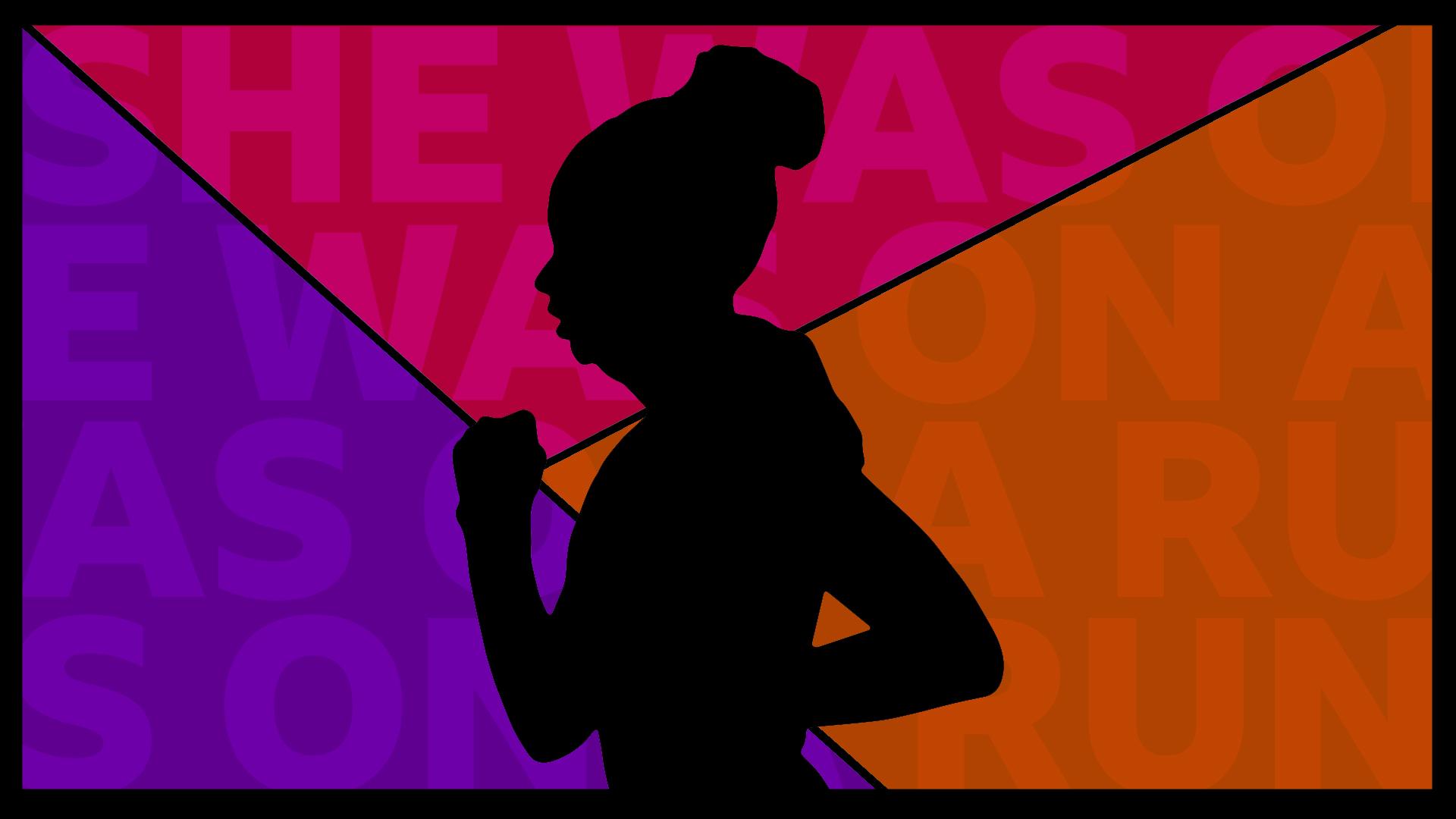
- Published10 March 2022
